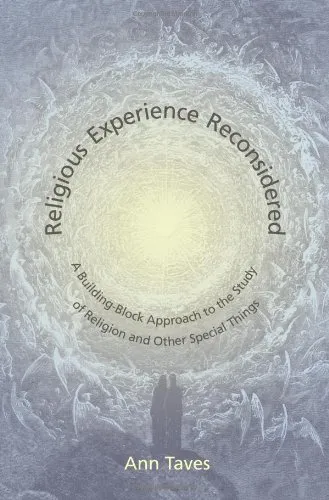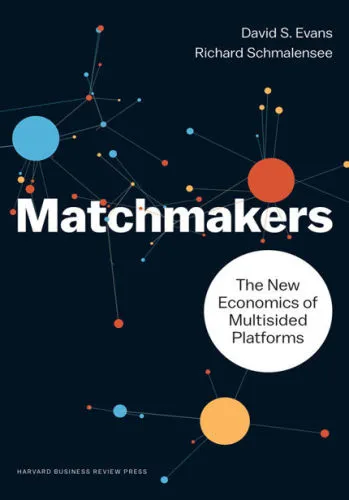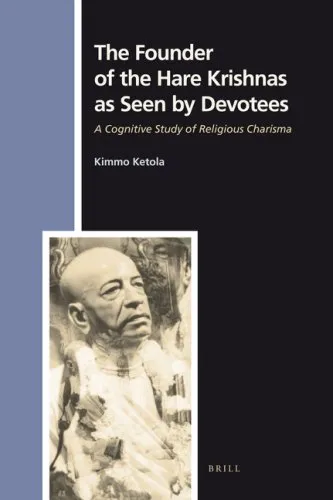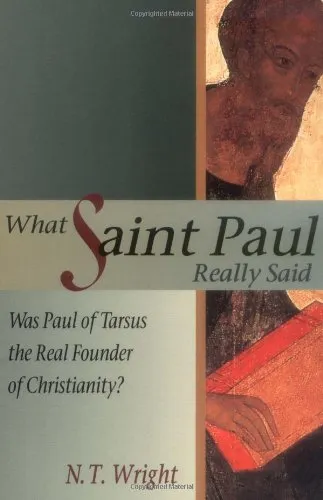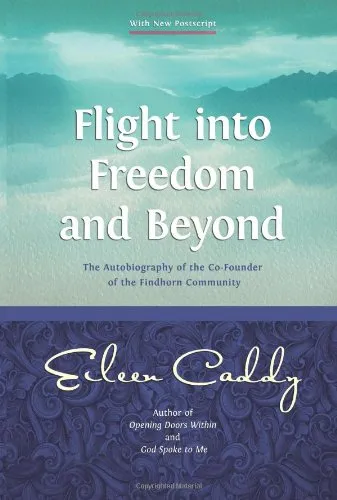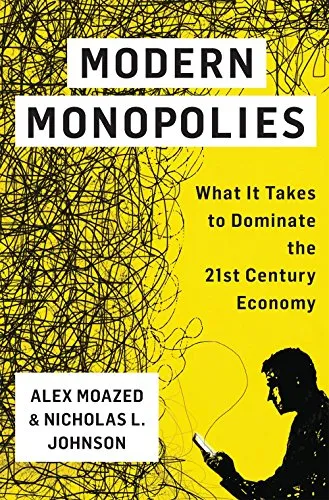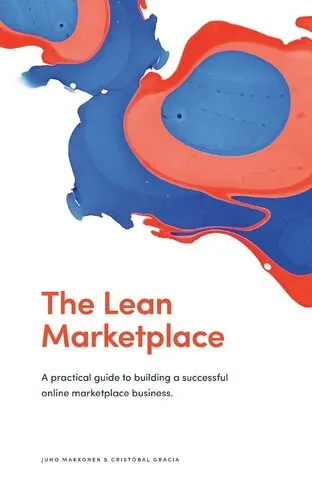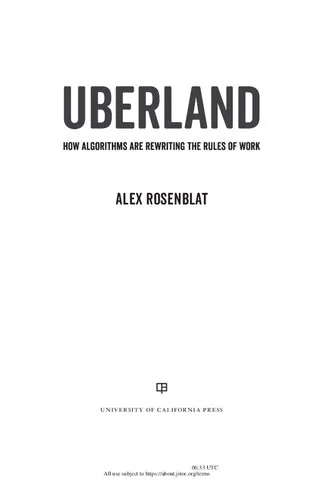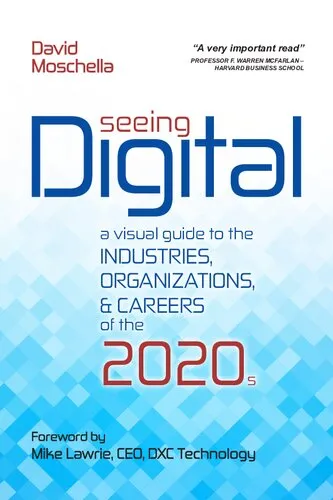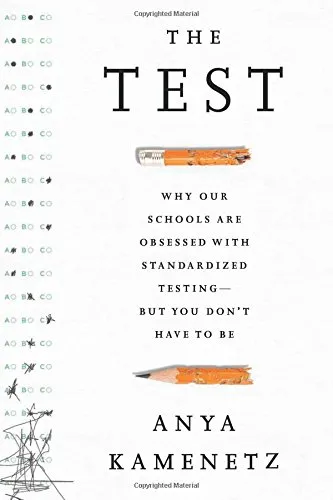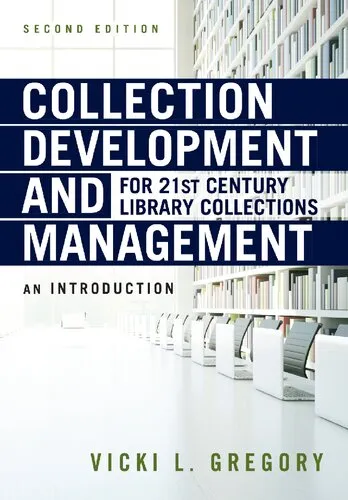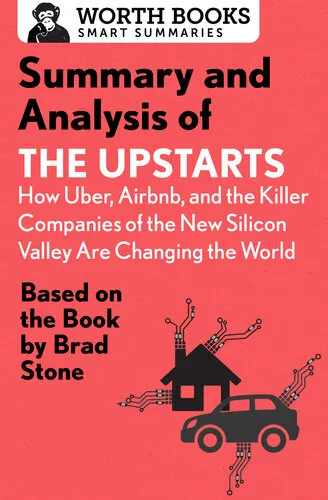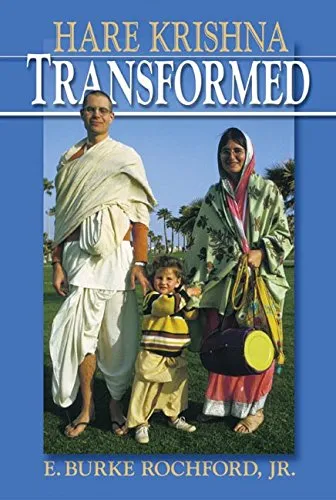Religious Experience Reconsidered: A Building-Block Approach to the Study of Religion and Other Special Things
4.5
بر اساس نظر کاربران

شما میتونید سوالاتتون در باره کتاب رو از هوش مصنوعیش بعد از ورود بپرسید
هر دانلود یا پرسش از هوش مصنوعی 2 امتیاز لازم دارد، برای بدست آوردن امتیاز رایگان، به صفحه ی راهنمای امتیازات سر بزنید و یک سری کار ارزشمند انجام بدینکتاب های مرتبط:
معرفی کتاب "Religious Experience Reconsidered: A Building-Block Approach to the Study of Religion and Other Special Things"
کتاب "Religious Experience Reconsidered" نوشته آن تیوز (Ann Taves)، یکی از مهمترین آثار در زمینه مطالعات دین و تجربههای مرتبط با امور ویژه (Special Things) است. این کتاب با ارائه یک رویکرد نوآورانه به تحلیل تجربههای دینی، تلاش میکند تا فراتر از چارچوبهای سنتی مذهبی، فهم تازهای از این موضوعات به خواننده ارائه دهد. در ادامه، خلاصهای جامع از اثری که خوانندگان و پژوهشگران حوزه دینشناسی و مطالعات انسانشناختی را تحت تأثیر قرار داده است آورده شده است.
خلاصهای از کتاب
کتاب "Religious Experience Reconsidered" با ترکیب روشهای نوین مطالعاتی در حوزه دین، روانشناسی، تاریخ و علوم شناختی، به بررسی تجربههای دینی و دیگر تجربیاتی که آنها را "ویژه" (Special) مینامد، میپردازد. تیوز در این کتاب مفهوم Building-Block Approach را مطرح کرده که پایه آن بر تفکیک بین تجربیات مختلف به اجزای سازنده سادهتر، قابل تحلیل و مشترک استوار است. او استدلال میکند که بسیاری از تجربیات ذاتاً دینی نیستند، بلکه توسط افرادی که از آن تجربه صحبت میکنند و از دریچه دین به آن نگاه میکنند، دینی تلقی میشوند.
در این مسیر، نویسنده رابطه بین "معنایابی" و "خلق تجربیات" را مورد بررسی قرار میدهد و توضیح میدهد که چگونه این دو عامل دست در دست هم میتوانند تجربیات دینی را برای افراد نهادینه کنند. تیوز بر این باور است که ما باید به تجربههایی که به عنوان دینی درک میشوند، نه به عنوان دادههایی دینی در ذات خود، بلکه به عنوان پدیدهای میانرشتهای نگاه کنیم که نیازمند تحلیل از منظرهای مختلف است.
نکات کلیدی کتاب
- تمرکز روی مفهوم Building-Block Approach برای تحلیل تجربیات.
- تمایز بین تجربه دینی به عنوان "برساخته اجتماعی" و تجربیات واقعی افراد.
- ارائه راهکار برای تحلیل پدیدههای پیچیده مذهبی و غیرمذهبی از طریق اجزای سازنده سادهتر.
- تقویت رابطه میان علوم شناختی و دینشناسی به عنوان حوزههای میانرشتهای.
- دعوت به کنار گذاشتن چارچوبهای سنتی در تحلیل تجربههای دینی و اتخاذ نگاهی انعطافپذیرتر.
جملات معروف از کتاب
"What counts as ‘religious experience’ is not something inherent in the experience itself, but rather the frameworks and labels imposed on it by people and cultures."
"We need tools that enable us to parse out the elements of experience that people consider special in ways that are meaningful to them."
چرا این کتاب اهمیت دارد؟
کتاب Ann Taves نه تنها به بازنگری در تعریف و مفهوم "تجربه دینی" میپردازد، بلکه ابزارهایی را ارائه میدهد که محققان و دانشجویان میتوانند برای تحلیل و تفکیک میان چشماندازهای مختلفی که انسانها از امور ویژه دارند، استفاده کنند. این رویکرد باعث میشود که بررسی پدیدههای مذهبی و فراطبیعی از دایره محدود مذهبی فراتر رود و امکان تلفیق با یافتههای علوم شناختی، تاریخنگاری، و انسانشناسی فراهم شود.
این کتاب همچنین به مخاطبان کمک میکند تا دریابند که چگونه تجربیات غیرمعمول و ویژه میتوانند به اشکال مختلف در فرهنگها و زمینههای گوناگون پدیدار شوند و چطور این تفاوتها میتوانند درک ما را از دین و فرهنگ به طور کلی تحت تأثیر قرار دهند.
Introduction to Religious Experience Reconsidered: A Building-Block Approach to the Study of Religion and Other Special Things
Ann Taves' groundbreaking work, Religious Experience Reconsidered, offers a unique perspective on the study of religion by rethinking how we conceptualize and analyze religious experiences and other extraordinary phenomena. This book aims to bridge the gap between disciplines like religious studies, psychology, anthropology, and cognitive science by providing an integrative framework that moves beyond traditional boundaries. By adopting what she terms a "building-block approach," Taves invites us to reconsider the elusive concept of religious experience and reframe it in ways that are accessible, analyzable, and empirically valid.
This book is not only a conceptual intervention in the academic study of religion but also a methodological guide for understanding how humans attribute significance to certain experiences, objects, or events. Taves’ approach is particularly compelling because it allows us to situate religious phenomena within the larger context of human cognition and cultural practices, making this work a valuable resource for scholars from various fields.
In this introduction, we will explore the key components of the book, including a detailed summary, major takeaways, notable quotes, and an explanation of why this book is essential reading for those interested in the scientific and scholarly study of religion.
A Detailed Summary of the Book
In Religious Experience Reconsidered, Ann Taves argues that the concept of "religious experience" is too vague and broad to serve as a useful category. Instead, she proposes a more flexible and practical "building-block approach" to study the experiences, objects, and practices that people deem special. By focusing on how humans attribute specialness, Taves provides a method to examine not just religious but also non-religious phenomena considered extraordinary or meaningful. This approach allows the study of religion to engage with broader questions about human meaning-making across cultures and contexts.
Taves begins by scrutinizing the history of the "religious experience" concept, which has often been treated as a sui generis phenomenon, distinct from other kinds of human experiences. She critiques this essentialist framework and suggests that we deconstruct the category into smaller, analyzable units—or "building blocks"—which can include feelings, thoughts, events, or objects that people imbue with special significance. By doing so, she opens up new possibilities for interdisciplinary research that incorporates psychological, biological, and cultural perspectives.
As the book progresses, Taves elaborates on how this framework can be applied to different forms of human experience. She provides case studies and examples from religious rituals, mystical practices, and even secular phenomena, demonstrating the versatility of her methodology. The book culminates in a call to action for scholars to adopt more empirically grounded and descriptive approaches when studying religion and other special things.
Key Takeaways
- The term "religious experience" is not a distinct phenomenon but rather a culturally and historically specific construct.
- The "building-block approach" allows scholars to break down experiences into smaller units, which can then be analyzed contextually and empirically.
- This approach encourages interdisciplinary collaboration, combining insights from cognitive science, cultural psychology, anthropology, and religious studies.
- By focusing on the attribution of specialness, scholars can study a broader range of phenomena, both religious and non-religious.
- The study of religion benefits from moving beyond essentialist frameworks towards more descriptive, practice-oriented methodologies.
Famous Quotes from the Book
"Rather than starting with religion and assuming some core experience or essence, I suggest starting with experiences and examining the processes by which people attributed significance to them."
"By focusing on the practices through which people identify things as special, we broaden the scope of what can be studied, enabling us to understand the human tendency to create meaning."
"Breaking down religious experience into its component parts allows us to see commonalities and differences across cultures without assuming a universal essence."
Why This Book Matters
Religious Experience Reconsidered is essential reading for scholars and students of religion, psychology, anthropology, and related disciplines. Its pioneering framework breaks free from outdated categorizations and opens new pathways for interdisciplinary research. By challenging the traditional concept of "religious experience," Taves urges scholars to rethink the boundaries of their fields and adopt fresh approaches that are both descriptive and empirically grounded.
This book matters because it moves the academic study of religion away from narrowly defined concepts and toward a broader recognition of human creativity and meaning-making. It is a call to embrace complexity and interdisciplinarity in understanding both the religious and the secular dimensions of life. Whether you are a scholar, student, or general reader, Religious Experience Reconsidered offers valuable insights into how humans ascribe specialness to the world around them, making it a timeless and thought-provoking resource.
دانلود رایگان مستقیم
شما میتونید سوالاتتون در باره کتاب رو از هوش مصنوعیش بعد از ورود بپرسید
دسترسی به کتابها از طریق پلتفرمهای قانونی و کتابخانههای عمومی نه تنها از حقوق نویسندگان و ناشران حمایت میکند، بلکه به پایداری فرهنگ کتابخوانی نیز کمک میرساند. پیش از دانلود، لحظهای به بررسی این گزینهها فکر کنید.
این کتاب رو در پلتفرم های دیگه ببینید
WorldCat به شما کمک میکنه تا کتاب ها رو در کتابخانه های سراسر دنیا پیدا کنید
امتیازها، نظرات تخصصی و صحبت ها درباره کتاب را در Goodreads ببینید
کتابهای کمیاب یا دست دوم را در AbeBooks پیدا کنید و بخرید
